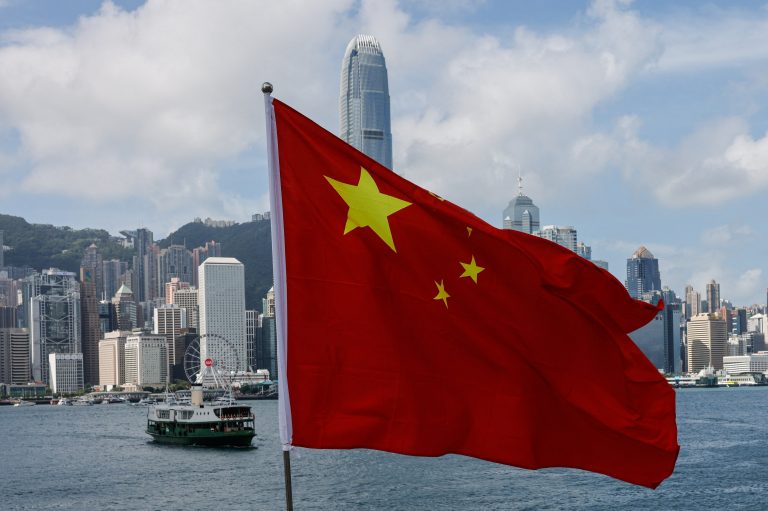
The Trump Administration: A New Era for Global Peace and Trade
As Donald Trump prepares to be sworn in for his second term in January 2025, the world braces for a return to the policies that defined his first presidency: economic protectionism, unilateral diplomacy, and a focus on U.S. national interests. Trump’s administration will likely continue to have profound effects on global peace and trade, with particular focus on the Middle East, the war in Ukraine, and U.S.-China relations. Given the evolving dynamics of global politics, Trump’s second term may accelerate existing tensions, alter alliances, and reshape the international economic order in ways that could have long-lasting consequences.
1. The Middle East: A Region in Flux
Trump’s first term saw a significant shift in U.S. policy toward the Middle East, most notably through his strong support for Israel and withdrawal from the Iran nuclear deal. In his second term, these policies are expected to deepen, further shaping the region’s political and security landscape.
Israel-Palestine and Regional Stability
One of the most notable actions during Trump’s first term was his recognition of Jerusalem as the capital of Israel in December 2017, defying international norms and sparking protests across the Arab world. His second term is likely to continue this trend of unequivocal support for Israel. His administration might also push for further Israeli-Arab normalization deals beyond the Abraham Accords, a framework that saw the UAE, Bahrain, Sudan, and Morocco establish diplomatic ties with Israel. Trump is expected to champion further economic and military cooperation between Israel and Arab states, which could reshape regional alliances.
However, Trump’s administration is unlikely to prioritize peace efforts between Israel and Palestine. The Deal of the Century, which Trump unveiled in 2020, effectively sidelined Palestinian aspirations for statehood and favored Israeli interests, including the annexation of parts of the West Bank. With Trump’s stance firmly aligned with Israeli security and sovereignty, any hope for a comprehensive peace agreement between Israel and Palestine appears bleak, especially as the status quo continues to favor Israeli settlement expansion and a fractured Palestinian leadership.
Iran and the Risk of Escalating Conflict
Trump’s withdrawal from the Joint Comprehensive Plan of Action (JCPOA) in 2018 marked a hardline approach toward Iran, with sanctions designed to cripple the country’s economy and limit its nuclear ambitions. In his second term, Trump is expected to double down on these efforts, as he remains adamant about what he perceives as the dangers of Iran’s regional influence and nuclear program. Trump’s administration will likely continue to pursue a “maximum pressure” campaign, potentially escalating tensions with Iran and its allies in Iraq, Syria, and Lebanon. This could lead to more direct confrontations, such as proxy wars or military clashes, particularly in the Strait of Hormuz, a vital chokepoint for global oil shipments.
Trump’s policies are also likely to reinforce the U.S.‘s military presence in the region, especially in strategic locations like Saudi Arabia and the UAE, where U.S. forces already support the defense of these Gulf nations against Iranian-backed Houthi rebels in Yemen. The risk of a broader conflict remains high, with Trump’s “America First” policies potentially emboldening Israel and its Arab allies to take more aggressive actions against Iran, heightening the risk of instability in the Gulf.
2. The Ukraine Crisis: A Shift in U.S. Support
While Trump was not in office when Russia invaded Ukraine in 2022, his previous admiration for Vladimir Putin and his skepticism of NATO suggest that his second term could change the U.S.’s approach to the ongoing war.
Reduced Support for Ukraine
During his first term, Trump was notably critical of NATO and often questioned the U.S.‘s commitment to the alliance. His isolationist tendencies, exemplified by his “America First” rhetoric, could lead to a scaling-back of U.S. military and financial support for Ukraine in its fight against Russian aggression. Trump’s skepticism about U.S. involvement in foreign conflicts may push him to cut aid to Ukraine, forcing European countries to take on a larger role in the conflict. This would shift the burden of the war from NATO to European powers, potentially destabilizing the region if the European Union or NATO is unable to provide sufficient support.
Negotiations with Russia: A Fragile Peace?
Given Trump’s favorable remarks about Putin during his first term, his second term could see the U.S. attempt to negotiate a peace settlement with Russia. While some may view this as an opportunity to de-escalate the conflict, it could come at the cost of Ukrainian sovereignty. Trump’s desire for a “deal” may lead him to push for concessions from Ukraine or NATO, potentially encouraging Russia to hold on to annexed territories like Crimea or parts of the Donbas region. Such a compromise would undermine Ukraine’s territorial integrity and set a dangerous precedent for other nations facing similar territorial threats.
Weakening NATO
Trump has long criticized NATO and demanded that European allies increase their defense spending. In his second term, NATO could face greater fragmentation. A lack of consistent U.S. leadership could weaken the alliance’s cohesion and hinder its ability to effectively deter Russian aggression. This fragmentation could create a power vacuum in Eastern Europe, with Russia growing bolder in its efforts to expand its influence in the region.
3. U.S.-China Relations: Trade Wars and Strategic Rivalry
One of the defining features of Trump’s first term was his trade war with China. Trump’s second term promises to continue his confrontational approach to Beijing, with far-reaching consequences for global trade.
Escalation of Trade Disputes
Trump’s tariffs on Chinese goods—amounting to billions of dollars—marked the beginning of an economic decoupling between the U.S. and China. His second term is likely to see this trade war intensify, as Trump’s administration may impose additional tariffs, particularly targeting Chinese technology companies like Huawei, which has been a focal point in the U.S.-China conflict. Trade between the two largest economies in the world is expected to remain strained, with both nations seeking to reduce their reliance on each other. This could lead to further disruptions in global supply chains, affecting industries ranging from electronics to manufacturing and agriculture.
Technological Decoupling
Beyond traditional trade, Trump’s administration will likely push for a complete technological decoupling from China, particularly in critical areas like 5G networks, artificial intelligence, and semiconductor manufacturing. His administration is expected to continue pressuring U.S. allies to avoid Chinese technological investments, and may even take measures to block Chinese companies from accessing U.S. technology. This would exacerbate tensions between the two superpowers and potentially lead to a bifurcated global tech landscape, with China and the U.S. developing separate technological standards and systems.
The Strategic Cold War: A New Era of Geopolitical Rivalry
Trump’s economic nationalism is unlikely to end with trade tariffs. He has framed China as a strategic adversary, and his administration is expected to continue pushing back against China’s growing global influence. This could manifest in efforts to contain China’s Belt and Road Initiative, an ambitious infrastructure project that aims to connect China with Asia, Africa, and Europe. In addition to trade disputes, the U.S. may engage in a broader geopolitical struggle with China over influence in the South China Sea, Taiwan, and Africa, where China has expanded its economic and military footprint.
Conclusion: A Fragmented World Order
Trump’s second administration promises a continuation of the “America First” policies that shaped his first term. His approach to global peace and trade will likely further fragment the international order, leading to increased instability in regions like the Middle East and Eastern Europe, while escalating the geopolitical rivalry with China. The U.S. may continue to withdraw from multilateral agreements, opting instead for bilateral deals that serve its immediate interests, which could further undermine global cooperation on issues like climate change, arms control, and international trade.
As the world braces for Trump’s return to power, the global community must prepare for a future where U.S. foreign policy is driven more by self-interest than global collaboration. The consequences of this approach will resonate far beyond U.S. borders, shaping the trajectory of global peace and trade for years to come.
Dr Brian Reuben is the Executive Chairman of the Sixteenth Council and the founder of Africa Economic Summit



